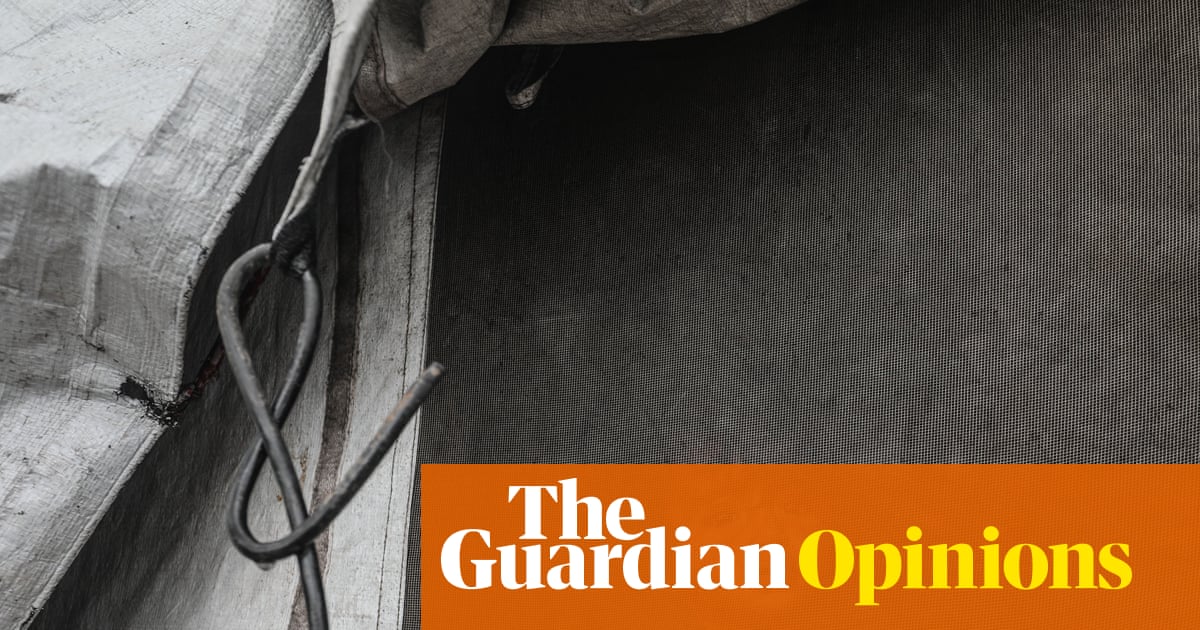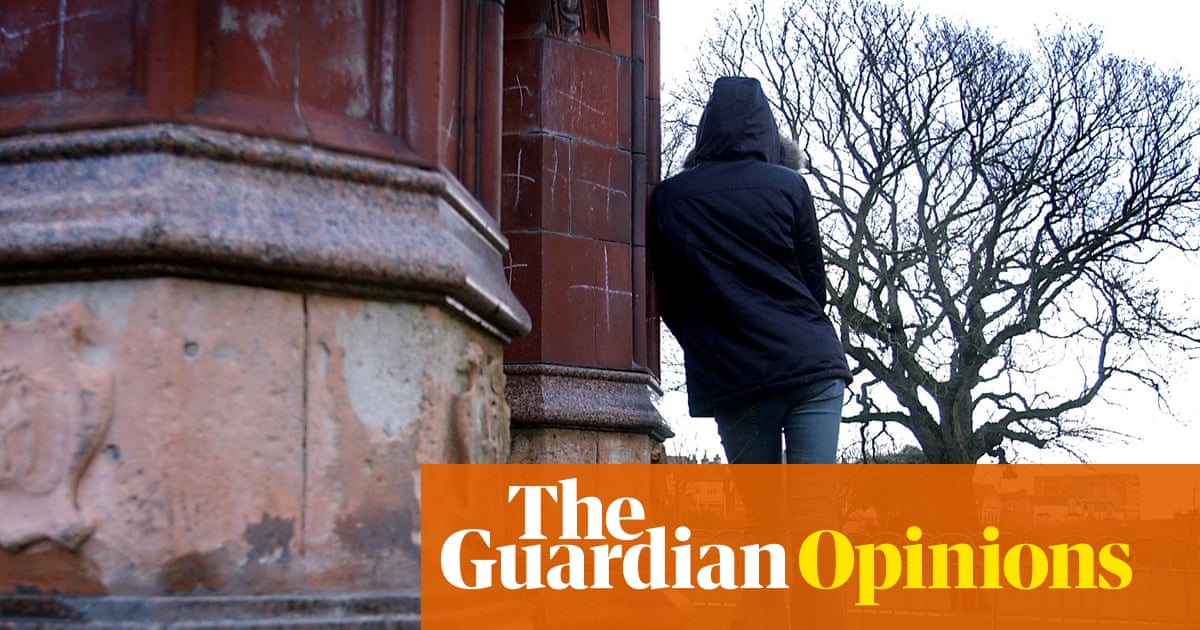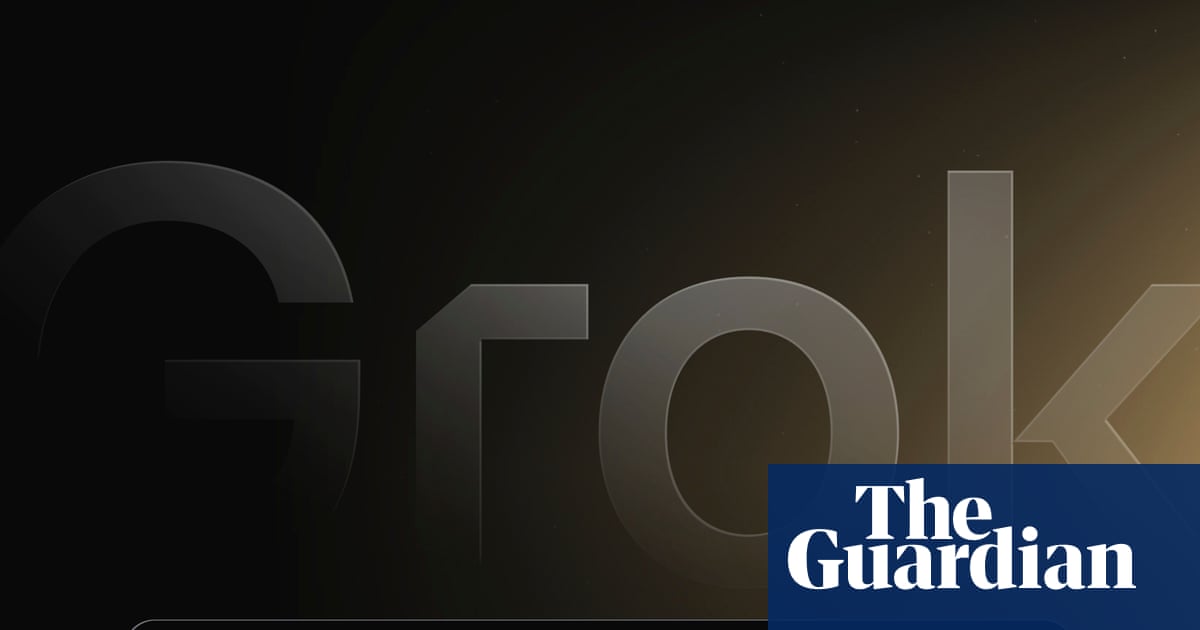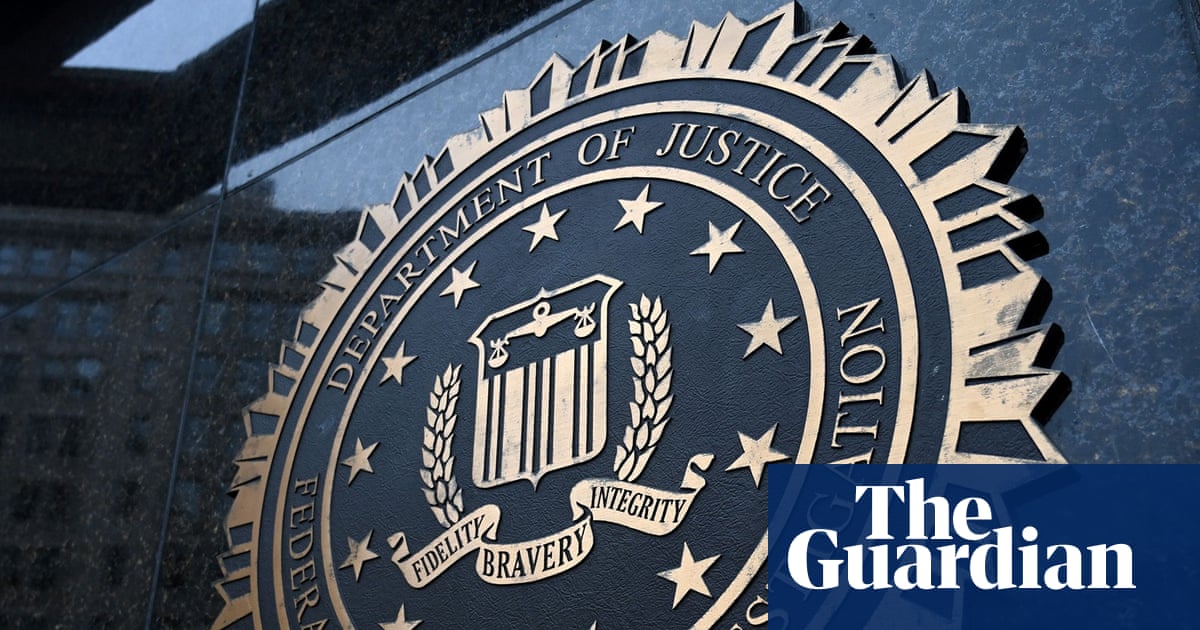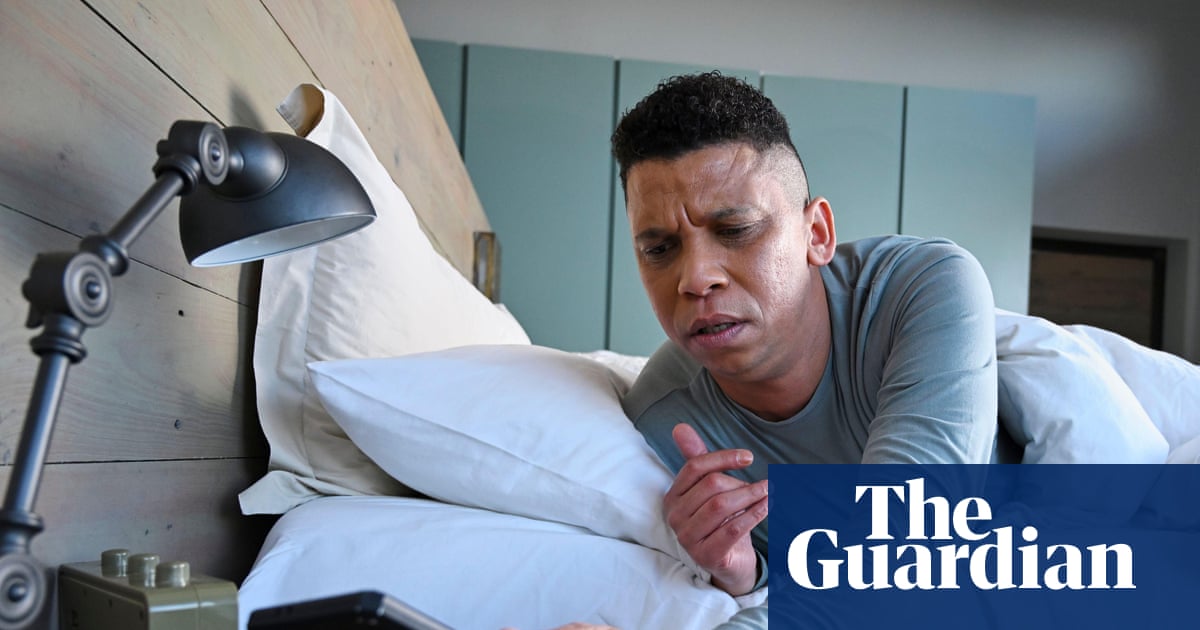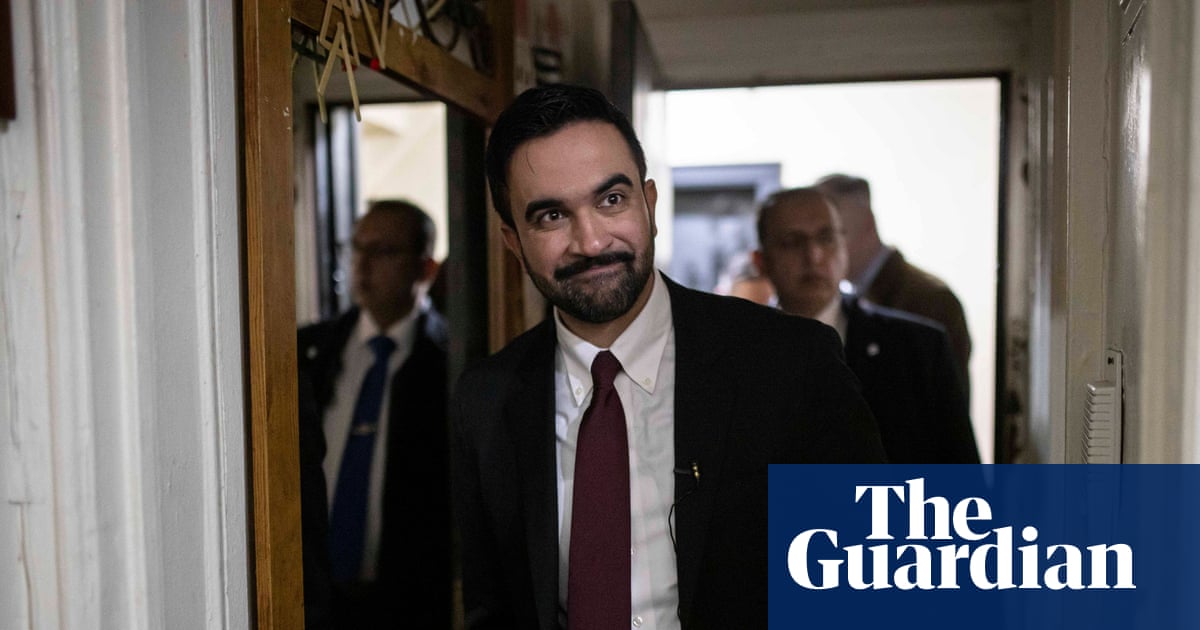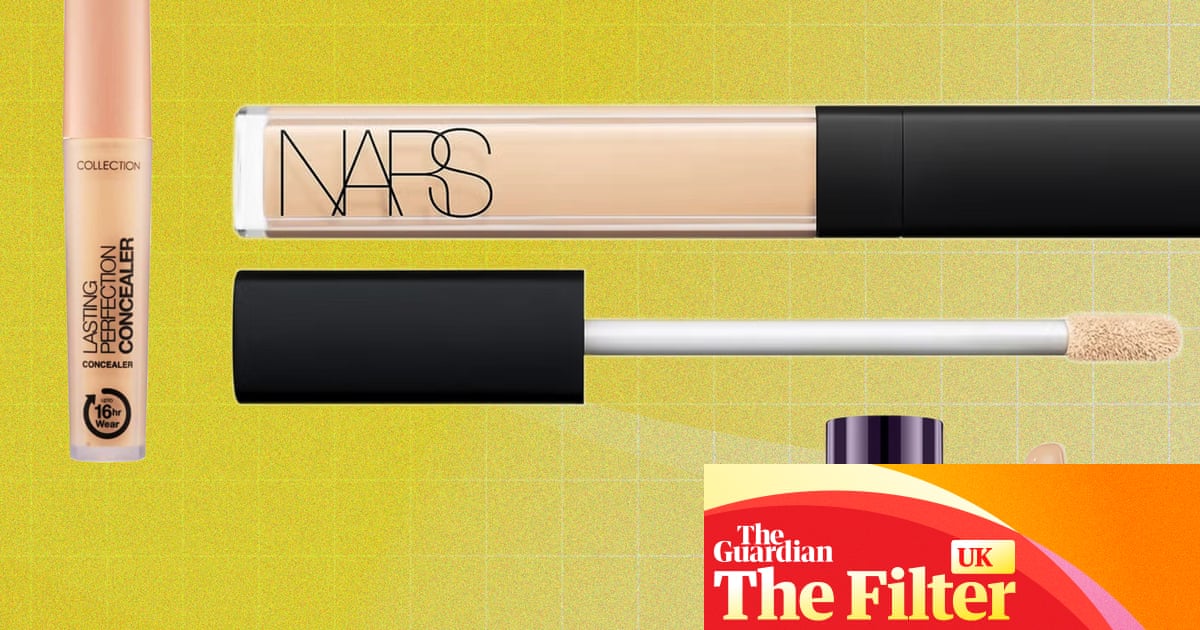A decade and a half ago, in 2009, I watched over 300 films, and I counted only three featuring senior citizens in significant roles. But the times they are a-changing, because leading characters of pensionable age are all over the place nowadays, whether solving crimes in The Thursday Murder Club; turning the tables on swindlers in Thelma or The G; wrestling with unreliable memories in The Father or Familiar Touch; or preying on other inmates or staff in The Home or The Rule of Jenny Pen.
Not long ago, the screen was monopolised by smooth-skinned teens and twentysomethings, but now it has been infiltrated by creased faces imbued with the sort of personality that can only be accrued over decades of experience and with minimal recourse to cosmetic surgery. And not just as non-player characters but in starring or pivotal roles in the narrative; no longer to be condescended to and patted on the head simply for lasting the course, but as people just like the rest of us. Real people!
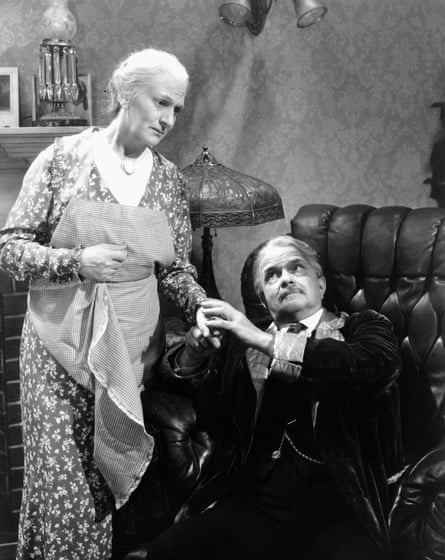
Which is not to say older characters are never stereotyped. Recent examples tend to be one of three kinds: feisty, frail or fiendish. Feisties hatch plans, solve murders and fight back against injustice, sometimes with the help of younger relatives who teach them how to use the internet. Frails are on a downward slide into dementia but their condition is treated with sympathy and respect, as is the plight of their relatives and carers. Meanwhile the Fiendish are egomaniacal miscreants who exploit, terrorise or kill. I sometimes wonder if it might be better to be a Fiendish than a Frail, though I would probably incline more towards Monty Python’s Hell’s Grannies, handbagging pedestrians out of the way, than, yuck, sucking the essence out of young people’s eyeballs.
As a woman now in her 70s, I am particularly alert to signs of representation of my generation in the cinema, and naturally I don’t recognise myself in any of these categories. But then, like most people my age I suspect, I don’t see myself as old. I am, though, ever on the lookout for ageing role models. One is forever being wrongfooted by classic Hollywood. It’s a shock to realise Beulah Bondi was still in her 40s when she played old Ma Cooper in Make Way for Tomorrow – of course the Great Depression would have aged people, but this was ridiculous. Gloria Swanson was 50 when she played Norma Desmond in Sunset Boulevard, depicted as terminally over the hill – though of course Billy Wilder’s film is itself an acerbic commentary on a film industry that scrapped its figureheads as soon as they were past the first flush of youth.
People are now living longer, and there are more of us refusing to be shunted aside. In 2016, according to the Office for National Statistics, 18% of the population of the UK were aged 65 or over. In 2041 this is projected to increase to 26%. More than a quarter! We all like to see ourselves represented in the cinema, proving there are still aspirations, fears and existential crises in the old carcass yet. And our favourite film-makers are getting older alongside us, so it makes sense that more ageing boomers are turning up on screen and actually doing stuff rather than being wheeled on as token grandparents.
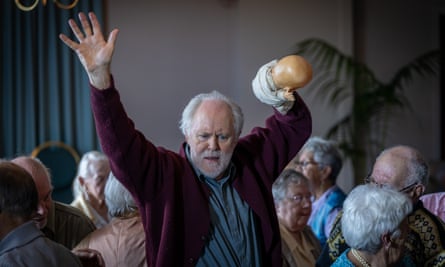
Now that the golden age of the mature female sleuth (Miss Marple, Jessica Fletcher, the Snoop Sisters) has passed, and that Judi Dench has now effectively retired from acting and the late Maggie Smith is no longer able to give her masterclass in withering epithets in Downton Abbey, we are obliged to look elsewhere for our doughty role models. Helen Mirren shouldn’t be required to shoulder all the burden on her own, as she shuttles between an unusually broad range of pensionable personae: from royalty to military intelligence to KGB agent to assassin to cockney crime matriarch to Barbie narrator. And anyway, who among us would dream of referring to Mirren as “elderly”?
Sometimes a smidgeon of Captain Tom-type sentimentality is allowed to creep in to a film, as happens in the otherwise admirably unromanticised The Great Escaper, based on real events, in which Michael Caine, egged on by Glenda Jackson in her last film role, absconds from his East Sussex care home to attend D-day commemorations in France. Only rarely are real-world concerns, such as trying to keep warm when your winter fuel payments have been cut, addressed on the big screen, least of all in The Thursday Murder Club, in which the intrepid seniors live in suites in a huge country mansion, a long way from neorealist dispatches such as Umberto D (1952), in which the aged protagonist gets behind with his rent and is kicked out of his digs.
The aged are often cast as harbingers of doom. Young gerontophobes, terrified of getting older, see their elders as unattractive, even monstrous, not to mention responsible for having reduced the world to its current parlous state. Hence, perhaps, the zombie-like hordes in the 2022 Spanish horror film The Elderly, in which their lethal aggression seems linked to global warming. In the similarly themed German film Old People, from the same year, pensioners turn savagely on younger folk in what appears to be a worldwide conspiracy. Taking a cue from Spinal Tap’s David St Hubbins, we should probably call this subgenre Night of the Assisted Living Dead. Of course the bloodthirsty oldies are metaphors – symbols of the older generation’s selfishness, or of relatives’ guilt at consigning Grandpa to a care home – but it doesn’t stop you wondering why their young victims don’t just push them over. Because as everyone knows, our bones are brittle, and once we’ve fallen over we can’t get up.
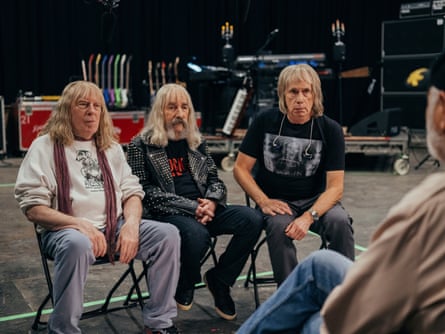
Meanwhile, those of us of a certain age are not just searching for desperately needed laughs but hoping to rekindle the spirits of our younger, sprightlier selves when we reunite with Christopher Guest, Michael McKean and Harry Shearer (average age 78) as the veteran rockers of Spinal Tap II: The End Continues.
There is serious Oscar buzz around 95-year-old June Squibb’s fearless performance in Eleanor the Great (Scarlett Johansson’s feature debut), as well as 75-year-old Amy Madigan’s bonkers one in Weapons.
More than six decades after the actor himself enlisted in the US Marine Corps, 86-year-old Scott Glenn stars as an ex-soldier in the action thriller Eugene the Marine, which recently premiered at the Oldenburg film festival. Ian McKellen (86) plays a famous artist who goes head-to-head with a forger (Michaela Coel) in The Christophers, a black comedy from Steven Soderbergh. Morgan Freeman (88) is coming up in Now You See Me: Now You Don’t. Charlotte Rampling (79) plays a formidable virtuoso in Arnaud Desplechin’s Two Pianos. And Samuel L Jackson (76) shows no sign of slowing down, having made five films last year, with another three coming up. Obviously we should be grateful these skilled veterans are still getting meaty roles instead of being put out to pasture. But might it also be a sign that the younger generation aren’t yet fit to fill their shoes?
In any case, the golden agers keep on coming, and they are legion. As one of the characters in Old People says, paraphrasing Leviticus: “Thou shalt honour the old, for they are great in number. And one day you will all be like them.”

 3 months ago
95
3 months ago
95
